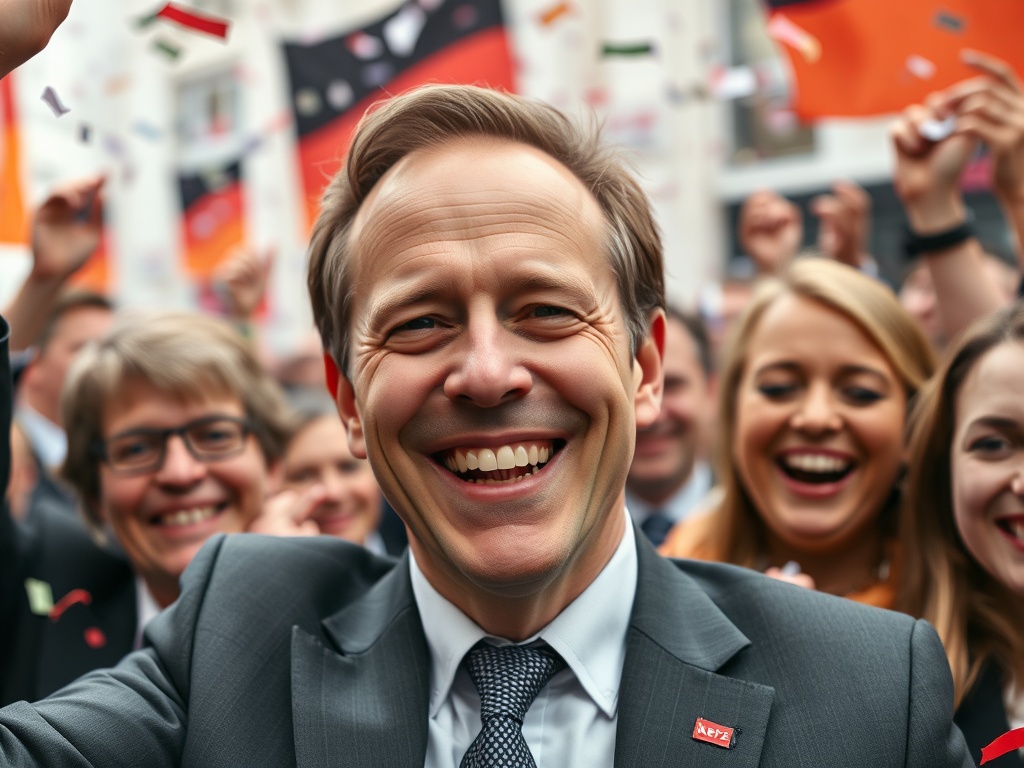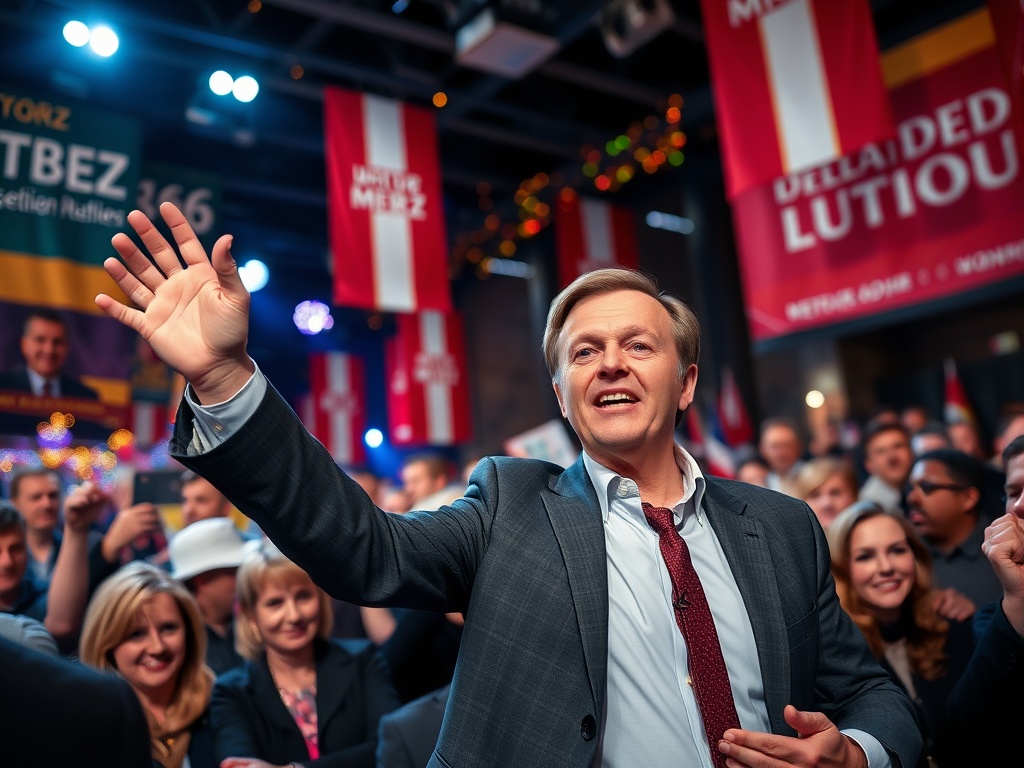Friedrich Merz Declares Victory in Germany’s Snap Elections
Friedrich Merz, the leader of the conservative CDU-CSU alliance, swiftly proclaimed victory this evening following a decisive win in Germany’s snap elections. He described it as a historic election evening, attributing the triumph to a remarkable campaign. Merz expressed confidence in his ability to form a government that acts in Germany’s best interests in the near future.
The 69-year-old corporate lawyer and investment banker is poised to become Germany’s next chancellor, succeeding the underwhelming Olaf Scholz. The social democrat SPD party, under Scholz’s leadership, experienced a devastating collapse in public support. However, Merz’s path to leadership is fraught with challenges, ranging from a discontented electorate to a faltering economy, compounded by unprecedented geopolitical tensions.
Election Results Reflect Unsettled Nation
The election results reveal a nation in turmoil. The far-right, pro-Russia Alternative for Germany (AfD) party made significant strides, almost doubling its vote share to 19.5 percent, up from 10.4 percent in the 2021 elections. Merz’s CDU-CSU benefited from a substantial rightward shift, securing 29 percent of the vote, a notable increase from 24.1 percent in the previous elections.
Alice Weidel, the federal chairwoman of the AfD and candidate for chancellor, celebrated this electoral success alongside Björn Höcke, the party leader in Thuringia (Photo: Getty Images Europe). The AfD’s xenophobic rhetoric resonates with a growing anti-immigration sentiment not only in Germany but also across Europe. However, the extreme positions of the AfD have led all mainstream parties to rule out any coalition with them.
This election marks a record for the far-right in Germany since the era of the Nazis, yet it represents a decline from earlier this year, when the party garnered controversial endorsements from figures like tech mogul Elon Musk and U.S. Vice President JD Vance.
Scholz’s SPD Faces Historic Defeat
The SPD, once a dominant force, fell to third place, garnering merely 16 percent of the vote, a sharp decline from 25.7 percent in 2021. This result represents their worst performance since 1887, a period when Otto von Bismarck was chancellor, and William I held the title of emperor. Scholz’s coalition partners also suffered significant losses: the Greens dropped to 12.7 percent, down two points, while the free-market FDP plummeted from 11.7 percent in 2021 to 4.9 percent, failing to meet the five percent threshold required to enter parliament. The combined vote share for the Traffic Light coalition fell from 52 percent to 33.5 percent.
Despite this setback, the SPD is likely to become Merz’s coalition partner. He indicated last night his intention to rebuild bridges as he embarks on negotiations. This process will likely occur under new SPD leadership, as Scholz is anticipated to be replaced by Defence Minister Boris Pistorius, one of the few SPD figures with significant public appeal.
Challenges Ahead for Merz

Given the delicate balance of parliamentary power, it remains a possibility that the Greens could also be included in a three-party coalition. However, Merz may prefer to avoid such complexities, having witnessed the contentious breakdown of the Traffic Light coalition.
Even as he navigates coalition-building, Merz will inherit a daunting agenda. The traditional German economic model is under strain. Industrial manufacturing, once a cornerstone of both domestic and European growth, is facing challenges, particularly in the automotive sector. U.S. President Donald Trump has threatened tariffs on European imports, singling out German automobiles, while Chinese electric vehicles are encroaching upon the market, as German manufacturers have been slow to transition to electric models. Additionally, the country is still grappling with the repercussions of reduced gas supplies from Russia due to the ongoing conflict in Ukraine.
Ukraine stands at the center of Germany’s international predicament. With Trump advocating for a peace agreement with Russia, European nations are increasingly aware of the necessity to bolster their support for Ukraine. Trump has also suggested that the U.S. might scale back its commitment to NATO unless European countries significantly increase their defense spending. Germany’s response to these pressures will be critical.
Merz has pledged to enhance defense spending, yet he will need to amend both German and European Union budget regulations to facilitate this significant financial commitment. This endeavor will likely require tightening expenditures in other areas, and Merz must prepare the German populace for the challenging times that lie ahead.




